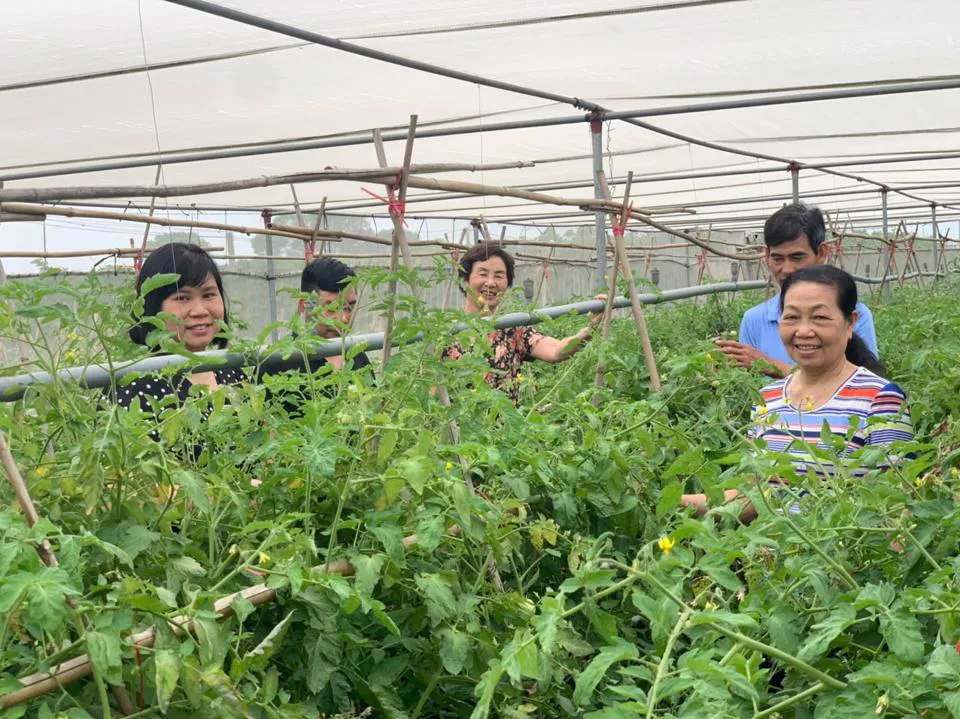Hi-tech farms to drive Hanoi’s agricultural growth
Looking ahead to 2030, Hanoi envisions mastering key high-tech innovations, managing production through integrated value chains, and nurturing high-tech agricultural models.
Hanoi, in its program No. 07-CTr/TU by 2025, will have more than 70% of its agricultural output coming from high-tech products.
Currently, this proportion is only 46%, indicating that significant efforts are needed in technology application and transfer.
| Safe vegetable plantation in Gia Lam District, Hanoi. Photo: Anh Ngoc/The Hanoi Times |
According to the Hanoi Department of Agriculture and Rural Development, the city has cultivated 406 pioneering models of high-tech agriculture, with 262 crop production initiatives, 119 livestock enterprises, and 25 aquaculture projects, mainly in Hoai Duc, Me Linh, Gia Lam, Thuong Tin, Dong Anh, and Thanh Oai districts. At the forefront of this transformation is Kinoko Thanh Cao Import-Export Company, a pioneer in applying high technology to agricultural production.
The city has also supported the creation of 68 high-tech agricultural cooperatives that are closely integrated with the consumption and quality standards of their products.
Despite these advances, hi-tech agriculture in Hanoi remains largely small-scale. While these innovative products boast impressive yields and quality, replicating successful models remains a significant challenge. Many businesses are reluctant to enter hi-tech agriculture, hampered by financing issues and land constraints.
Nguyen Xuan Dai, Director of Hanoi's Department of Agriculture and Rural Development, said the department is working on an ambitious "Plan for the Development of High-tech Agriculture in Hanoi by 2030".
He added that this forward-thinking strategy aims to revolutionize seed production, farming practices, and agricultural processing, paving the way for a modern and sustainable agricultural landscape in the capital.
Looking ahead to 2030, Hanoi envisions mastering key high-tech innovations, managing production through integrated value chains, and boosting high-tech agricultural models, Dai pointed out.
The city aims to establish about 30 high-tech agricultural cooperatives and to nurture at least 40 enterprises in this dynamic sector. It also plans to create 250 high-tech agricultural cooperative models, all linked to sustainable development and value enhancement.
Dai emphasized that products from high-tech agricultural enterprises must not only meet strict safety and environmental standards but also obtain international certification. This commitment will increase the value of products and solidify the competitive edge of Hanoi's agricultural offerings both domestically and globally.
Achieving these goals will both drive the growth of high-tech agriculture and ensure stable incomes for farmers, ultimately contributing to a modern and sustainable agricultural future for the capital, the director said.












